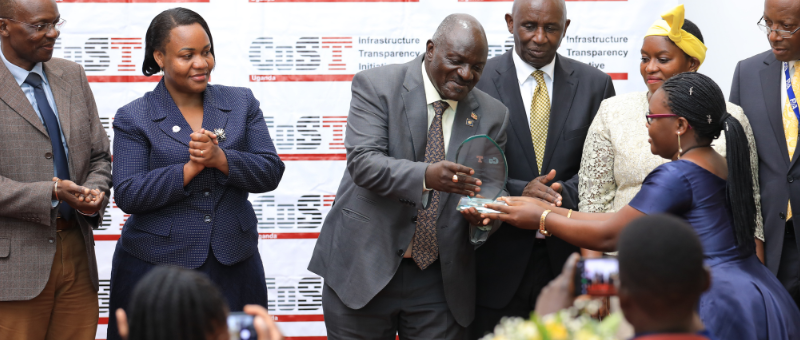Today, we publish a powerful impact story on how Uganda has utilised the CoST approach to deliver the cultural and legal change required to further advance better public infrastructure over the last five years.
Read the full story here.
The story sets out powerful learning including on how CoST Uganda delivered on top five reforms including:
- institutionalising a culturally rooted participatory mechanism of barazas to bring together over 3000 citizens face to face with decision makers to influence public infrastructure decisions, leading to the importance of citizen participation in the monitoring of public contracts being enshrined into law (PDDA Act 2021);
- securing a government commitment to utilise the CoST international data standard for public infrastructure and upskilling government officials to disclose over $1 billion worth of projects on the portal to date;
- building a culture of engagement and advocacy in using data to monitor and report on public infrastructure projects, including training the media to publish over 100 media stories on public infrastructure nationally;
- embracing independent review and analysis to identify areas for improvement and acting on these findings, including completing two Infrastructure Transparency Index (ITI) and six independent reviews (assurance reports), leading to a 26% improvement in their disclosure rate and nearly 20% increase in their citizen participation score; and
- improving fair business practices which increased competition and value for money, including by influencing legal reforms to the Public Procurement and Disposal of Public Assets Act and associated legal framework. Legal reforms include halving performance securities and bid securities, removing bid validity periods and new government guidelines reserving 15% of contracts awards to Special Interest groups to promote inclusion of women, youth and people with disabilities.
This builds on previous significant achievements from CoST Uganda, including saving millions in public money, and strengthening supply of water, food and income for farmers.
You can learn more about CoST Uganda on our website and their website.
